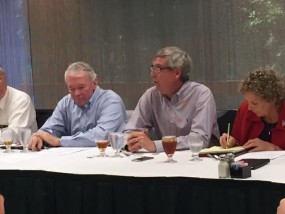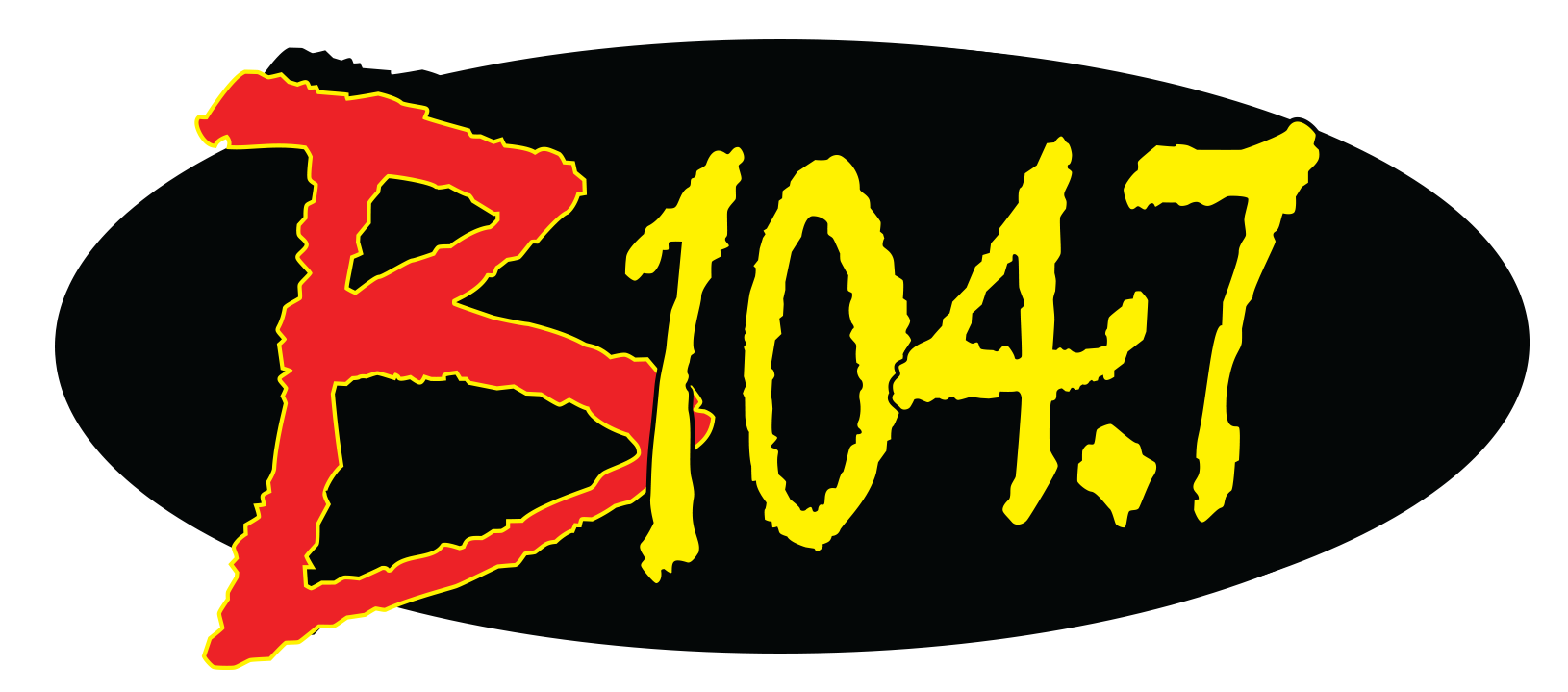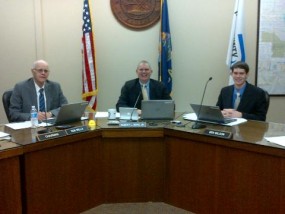
Thursday afternoon Riley County commissioners, department heads and state lawmakers met for a legislative conference in the Commission Chambers and discussed issues that they contend are hampering effective government in the county.
This wasn’t the first legislative conference in Manhattan and it won’t be the last. Riley County commissioners have been adamant in recent years in keeping the lines of communication between themselves and local legislators open.
All sides listened and legislators were sympathetic to local governance and its frustration with the property tax lid that was slipped in June’s budget bill at 4 a.m. on the 113th day of the last session — a new record that no state lawmaker will tout and cost taxpayers an additional $43,000 per day after the standard time-frame of 90 days wasn’t enough to craft a tax bill that still didn’t balance the budget.
Two Democrats, Sen. Tom Hawk and Rep. Sydney Carlin, were present Thursday, along with Republican Rep. Tom Phillips.
Hawk voted against the budget bill that included the tax lid, while Carlin and Phillips were absent.
It passed the Senate 21-19 and in the House it was approved 63-45.
Republican Rep. Ron Highland of Wamego voted for it and wasn’t in Manhattan to join his colleagues. County officials said he had a speaking event, instead.
Highland is up for re-election next year and has a Democratic challenger in Rossville City Councilwoman Adrienne Olejnik.
Also present was Melissa Wangemann, who is the general counsel to the Kansas Association of Counties.
While the proposed tax lid — which handcuffs local governments in their ability to regulate property taxes and sets an impossible time-frame for elections on possible property tax increases — has caused an especially painful headache for counties and cities, it’s the relationship between local and state government that seems the most strained.
Riley County Commission Chairman Ron Wells, who is running again for his office next year, has been vocal in his frustration with the state and the tax lid.
“Why are they telling counties how to manage their money, when they can’t manage theirs?” Wells has said often about Topeka and the proposed lid.
It’s no secret the local and state governments in the state of Kansas have been at odds with each other lately.
The state has cut funding for programs drastically since Republican Gov. Sam Brownback’s 2012 income tax cuts — which went largely to the wealthy in an effort to encourage hiring — began and three years later, the Sunflower State is again eyeing a big budget deficit and has experienced an economic recovery that has lagged behind the rest of the nation.
This time, the state is projected to be $354 million in the hole through June of 2017 and legislative researchers now project cash reserves of less than $6 million at the end of June 2016.
As the funding local governments have normally received in the past from Topeka has dried up, cities and counties — the main distributor of funding for schools — have had to make up the difference in property tax increases.
Even the state has increased taxes.
While Brownback’s 2012 income tax and exemptions to large corporations remained, the state legislature passed the largest tax increase in state history in June.
Property taxes are indeed going up across the state and thus, so has the finger pointing.
One of the proposals Riley County Counselor Clancy Holeman shared with legislators included a policy that hopes to collect delinquent real property taxes and to deny vehicle registration to applicants owing those delinquent taxes.
A similar additional proposal wants to use payments owed to county vendors delinquent in their real property taxes to go to that deficit rather than the vendor’s bank account.
Holeman told legislators they are ideas that go beyond Riley County, as the problem is state-wide.
Hawk, Carlin and Phillips agreed with Holeman, but didn’t express much hope that it would gain traction in Topeka — nor a repeal of the property tax lid that could go into effect as early as 2017.
Riley County Register of Deeds, Debbie Regester, told legislators that the repeal of the mortgage registration fee — which was pushed by the Kansas Association of Realtors and the Kansas Banking Association last year — has increased per-page fees to customers.
Before, the fee — .0025 percent of the cost of the home — was included in the purchase and paid incrementally over the life of the mortgage. Lawmakers sold the legislation by asserting an increase in per-page filing fees and recording fees would off-set the loss of the fee, which would be phased out completely by 2019.
Now that the numbers are in, Regester said what used to be a $1,000,000 revenue-generator for the county will be just $250,000 in four years, while at the same time increasing the cost for anyone doing paperwork in her office.
Then there’s Riley County Appraiser Greg McHenry, who earlier in the morning during the commission’s regular business meeting, informed commissioners of potential future legislation this spring that will prohibit county treasurers from distributing any property taxes paid under protest until the appeals process has been completed.
Since most of those appeals are done by large commercial properties who employ private tax representatives to disagree with the county on their valuations, the potential for large amounts of monies that find their way to roads and schools will be frozen.
That information was also passed along to Hawk, Carlin and Phillips.
It’s an odd situation in the state.
A large percentage of the county commissions from Overland Park to Colby are conservative and even more so is the state leadership from both chambers to Brownback’s desk.

State Rep. Tom Phillips, center, speaks to local leaders during an intergovernmental luncheon earlier this year. (File photo)
So many people are on the same page and team, politically, but full of bitterness and infighting, in reality.
“The term ‘conservative’ has to be balanced with what your ideology is,” Phillips said. “And I think there’s just an ideology that exists in the legislature that wants to eliminate government, defund it and not try to really operate efficiently and effectively.
“The county commissioners know firsthand what has to be paid for in terms of road maintenance and the health department — they’re trying to save taxpayers’ dollars whenever they can, I’m convinced of that — but costs keep going up and demands for new roads, things of this nature… there’s a cost associated with it.”
Over the last few years Riley County commissioners have been talking about the “shift” in taxes they claim has happened recently.
Phillips, who voted against the 2012 tax bill, agreed.
“We like to say we’re reducing taxes at the state level — which we are,” he said. “But in many instances what we’re doing is just shifting that tax burden and responsibility back to the city, the counties and the school board, and that results in increasing property taxes, which I think is probably the most despised tax that we have right now.
“People are really just fed up with property taxes going up and up and up — in light of the fact there are certain businesses now that we’ve exempted from paying zero income tax, and that’s just not right. That’s an issue of fairness and equity and we need to correct that at the state level.”
For Sen. Hawk, the tax lid addition to the budget bill was a “bogus” one.
“It was done as a political manipulation to really take the public’s eye off the ball with what was happening with the largest tax increase in history with the sales tax,” he said. “And to give the illusion the legislature was there to try and hold down people’s property tax.
“I think the people who voted for it should be embarrassed. I believe in local control.”
Hawk said the disconnect isn’t in his party and that outside influences such as the conservative-leaning American Legislative Exchange Council — otherwise known as ALEC — and of course, the Wichita-based Koch brothers, has played a part.
“The majority in the legislature is not in touch with what local communities in Kansas need,” he said. “They’re really being too influenced by big money and they’re being manipulated into passing laws.
“To stand up for my caucus, I think the people in my Democratic caucus do hear from the local people and we are in tune with our local governments, and we have been supportive and have largely voted against this nonsense.”
Wangemann, who’s been with the Kansas Association of Counties for past seven years, said a major culprit in the frustration between local and state governments stems from inexperienced people Kansans seem to be sending to Topeka.
“The disconnect I think is that sometimes legislators don’t understand how counties work, or cities, for that matter,” she said. “There was a time when people would run for a local office — they’d run for city council, then maybe they’d move to county commission and then they’d move to state legislature — and I’m not sure we’re seeing that same pattern.
“So we have people who go straight to the legislature and they are not familiar with city government or county government. They don’t understand our revenue process or our budgeting process.
“What Riley County expressed today are the same concerns we are hearing from other counties.”



